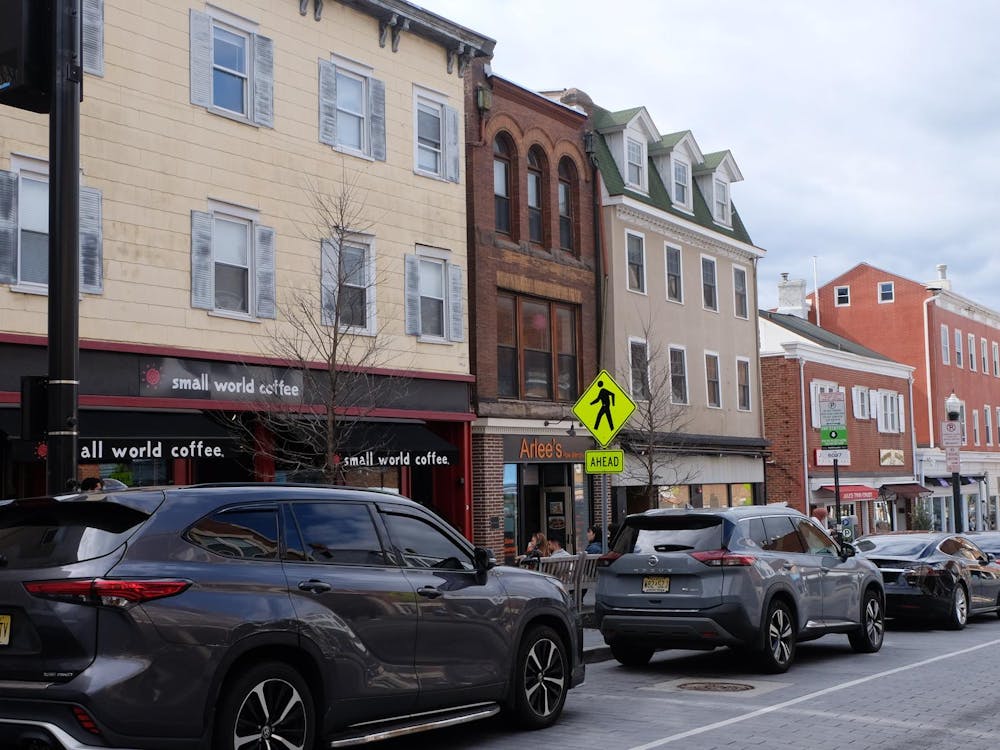I hope the conservative students at Princeton join us for the many events planned for Latinx Heritage Month. I don’t mean that flippantly, or even as a challenge, but more of an invitation. The events planned for this year’s month include film screenings, lectures, talks, gatherings, and many meals that attempt to both showcase and explore the rich cultural diversity of the Latinx community at Princeton and beyond. Many of the events speak to the social and political issues the Latinx community faces, providing the opportunity for members of our community to reflect critically on our history, our present, and our future. In this sense, the month is about making our community more visible to us, the Latinx students at Princeton, as much as it is about making our community more visible to Princeton University. Situated between the value of diversity and the ethic of inclusion, the events this month are for everyone.
And yet I feel the need to state explicitly that conservative students, particularly non-Latinx conservative students, are welcome. I make this invitation in the context of nationwide debates about free speech on college campuses and as a corollary to a statement put out by several conservative professors, including some from Princeton, encouraging incoming freshmen to “think for themselves.” While so much has been said on the right to speak one’s mind, to challenge orthodoxy, and to foster a sense of individuality during one’s undergraduate years, little value has been placed on the act of listening, participating, and getting to know a side one is unfamiliar with. This not the act of listening in the context of an argument, but rather the act of listening in the context of exploration and discovery — that is, a humbling act of engagement focused on understanding.
To be frank, the reason I make this invitation is because I just don’t see very many conservative students, especially non-Latinx conservative students, at our events. This is not to say that attending an event is a prerequisite for having an opinion. But, in the context of a conservative movement at Princeton and beyond, one that is critical of designating Princeton as a “sanctuary campus,” resistant to ideas of social and racial justice, and sometimes even hostile to our culture, perspectives, and history being included at Princeton, I have to wonder if conservatives really understand where we’re coming from. I don’t mean to suggest that if our community was understood we would all suddenly agree, but what I know is that no good faith effort has been made on the part of conservatives at Princeton to listen, engage, and understand us. I hope that before positions are entrenched, before students go off to think only for themselves, time is taken to engage with those one does not know.
I can already anticipate the conservative response to such an invitation, pointing out that many in our community decline to attend their events too. This is a half-fair point, to say everyone would benefit from listening to those they do not know, but it seems like a stretch to say that conservative thinking is somehow repressed or hidden at Princeton. Latinx Heritage Month, like other racial and cultural months, comes from an acknowledgment that for the vast majority of Princeton’s history, Latinx students were not permitted to attend, and when they were admitted, they were often made to feel invisible and marginal to the larger, whiter Princeton community. While the University has worked to correct this past, providing support for Latinx Heritage Month as well as countless other events at Princeton, the social scene remains increasingly segregated. The consequences of that segregation are felt in the tenor and tone of conservative students at Princeton, who seem quick to criticize and debate but rather reluctant to take the time to understand. One wonders if the President of the United States – who began his campaign by calling Mexican immigrants rapists, questioned a Latino judge’s qualifications because of his race, and continues to stoke fear and hatred against Latinx immigrants – ever once made it a point to get to know our community, or if he came to those conclusions and said those many terrible things after listening and learning.
As an anthropologist, I am in the business of listening and learning from others. My discipline takes seriously the notion of difference and places value on the process of attempting to understand how another community, with all the complexity and open-endedness, sees the world. In doing so, as anthropologists claim, we also come to understand ourselves. The process of truly trying to comprehend something new and unfamiliar often requires that we alter our own thinking and perspective, situating ourselves at the critical edge of our own culture and the other. In the context of fieldwork, this can be a rigorous and challenging endeavor, but as a matter of ordinary life, it constitutes a positive ethic of discovery. Before we can speak, freely or otherwise, we have to listen.
And so I return to my original invitation, encouraging all students, but especially conservative students, to attend Latinx Heritage Month. The undergraduate Latinx leaders at Princeton have worked tirelessly to put together an amazing set of events that are designed to educate, spark conversation, and bring visibility to the Latinx community at Princeton. My organization, the Latino Graduate Student Association, will also host several events that we hope will draw students and faculty from across campus. The invitation represents a chance to listen, learn, and hopefully better understand our community in all its rich complexity. It is, however, NOT an invitation to debate. For this month, perhaps for the first several weeks of a new year (perhaps for our entire lives), let’s make a good faith effort to listen, humbling ourselves not to the possibility of agreement, but perhaps to the possibility of transformation and mutual recognition.
Brandon Hunter is a third year graduate student in the Department of Anthropology from Washington, D.C. He can be reached at bh11@princeton.edu.







